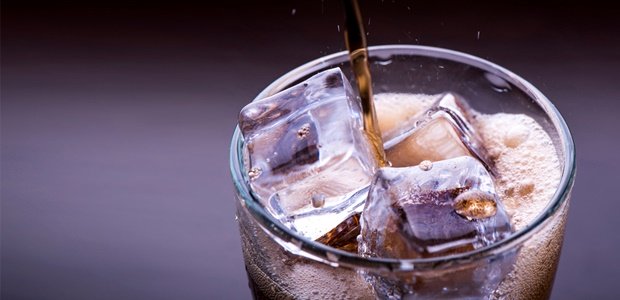In an age where South Africans are becoming more aware of the dangers of sugar, why do local brands continue to pour mounds of the stuff into their products?
Trending receives a lot of deliveries from PR companies that want us to write about (and hopefully punt) their clients’ new products. Sometimes we love what we get, and other times, well, it’s a disaster.
Anyone who’s read our popular #Trending Taste Test would have seen us call Starbucks Pumpkin Spice Lattes “too artificial, too cloying and too American”, Strongbow Red Berries flavour “Drink-o-Pop mixed with beer” and Brutal Fruit Cranberry-Rose “brutal kak”.
Since then, we’ve received two products in particular that are so bad that they’ve prompted this column.
One is Score Sparkling Apple, an energy drink by Chill Beverages that boasts dubious assets, including “double hit guarana”, a “high caffeine content”, “triple-filtered water” (was the water so dirty it had to be filtered thrice?) and the statement that it “lasts LONGER!” On the website it states: “Not recommended for children under 12 years of age, pregnant and lactating women, and people with a sensitivity or intolerance to gluten and/or lactose.” But the real shocker was the sugar content, a whopping 62g per 440ml can. That’s more than 12 teaspoons of sugar in one drink.
Then we received a delivery of Frankie’s Old Soft Drinks. Some of you might be familiar with this product, given its quaint plastic bottles and candy-striped branding. What’s dubious about Frankie’s is that its homely packaging, with the 50s pin-up girl; old-timey font; and claim that it’s produced “using timeless skills and recipes passed down through generations” create an immediate and powerful feeling of trust in the product (well, maybe for white people born in America) – as if this is your grandma’s lemonade that’s been bottled especially for you.
The problem? The average bottle of Frankie’s has the same amount of sugar in it as a bottle of Coke. Their Old Style Root Beer flavour has a whopping 55.6g of sugar per 500ml – that’s more than 11 teaspoons. Not that you’d know it from reading the label. Frankie’s has no nutritional information on its products, prompting consumers to “visit their website” to find it.
According to Gabi Steenkamp, a dietician and expert in food labels, South African food labelling regulations do not make it mandatory to have nutritional information on products, unless the label makes a claim about the product. So, for instance, if you say the drink will give you energy or has health benefits, you need to state the nutritional value. If not, no label is required. Luckily, Steenkamp says this law might change when a new set of food regulations is put in place in three years’ time.
In an age when sugar is increasingly in the spotlight for its unhealthy and possibly addictive effects, and when our minister of health has imposed a sugar tax in an attempt to curb the rampant obesity and diabetes problem in our country, why are soft drink companies (especially local ones) not trying to do better?
We want to support local brands and start-ups, including Score and Frankie’s, but we can’t do that if what’s inside the bottle might very well be killing us. We implore soft drink companies to do better, and that means less sugar. Way, WAY less.
What are your thoughts on this issue? SHARE them in the comments section below…

